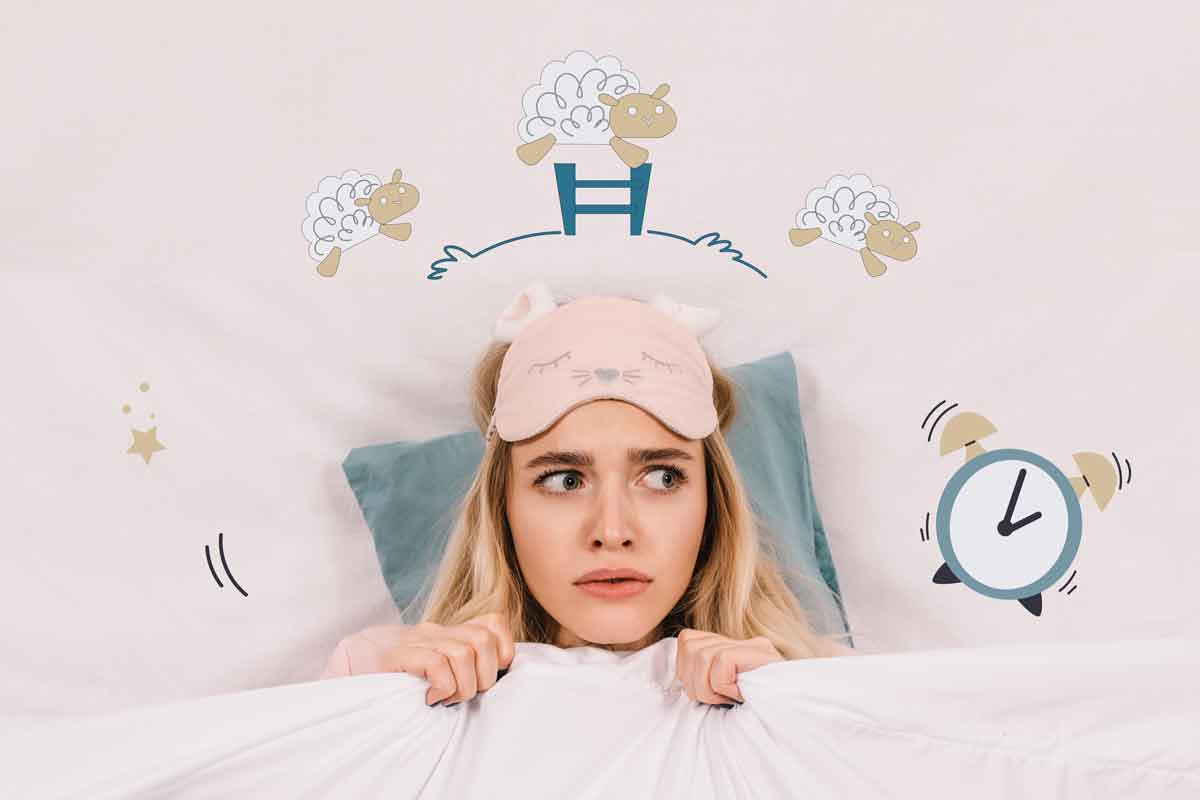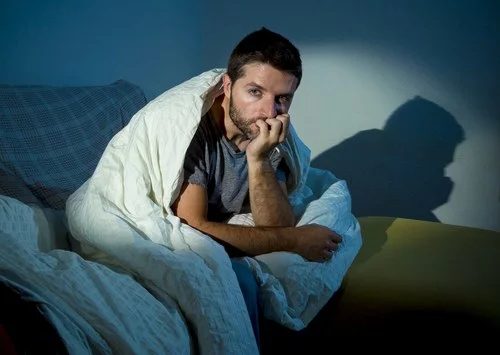If there’s one essential pillar of mental and physical health, it’s getting enough quality sleep. Although sleep seems like doing nothing, your body is doing a lot. Sleep is when your body repairs damage from the day. It’s when you fight infections and clean up the mess they left. That’s why you want to sleep all the time when you’re sick. It allows your body to devote energy resources to fighting the infection and healing the damage.
Lack of quality sleep causes a number of problems. Physically, you feel more fatigued since you haven’t had time to adequately recovery from the previous day. Many studies have found that chronically getting too little sleep increases risk of early death by about 12 percent. Specific risks include heart disease, diabetes, weight gain, hormonal imbalances, such as too little testosterone, excessive insulin release, leading to low blood sugar, high blood pressure, and inflammation.
Mentally, too little sleep can take a more immediate toll. Even one or two nights of too little sleep can cause poor concentration and memory, lack of coordination, fatigue, anxiety, low mood, irritability, and diminished self-control. Recent studies have found that a few nights of too little sleep can even increase suicidal thoughts. Sleep is also when memories are consolidated, so not getting enough sleep will make learning new skills or information harder. You may experience microsleeps, when your brain, or parts of your brain shut down for just a moment to try to take care of deferred maintenance. You remain conscious but your normal functioning can be significantly impaired. A long period of insomnia might even lead to paranoia or hallucinations.
Chronic insomnia is frustrating and debilitating for anyone. It’s even worse if you are recovering from addiction or mental illness. If you’re struggling with a mood disorder, insomnia is the last thing you need. Learning new emotional regulation skills and creating a healthier lifestyle requires plenty of sleep every night. Unfortunately, many mental health issues cause poor sleep. Depression, anxiety, and PTSD are all notable for sleep disturbances, which only make the conditions worse. Insomnia is also a common withdrawal symptom when quitting many drugs. Whether recovering from mental illness, addiction, or both, getting enough quality sleep every night should be a top priority. So how is insomnia treated?
Cognitive Behavioural Therapy
It may surprise you that therapy can help you sleep, but it may be the single most effective way to beat insomnia. If you do have an issue such as depression, anxiety, or PTSD, better sleep will be the natural result of treating those conditions. If your insomnia is from stress, or you just have no idea where it came from, cognitive behavioural therapy, or CBT, can help with that too. There are many different strategies in the CBT toolkit for treating insomnia. Typically, these entail examining your irrational beliefs about sleep. For example, many people start catastrophizing when they have trouble falling asleep. They start thinking things like, ‘Oh no, I can’t sleep. I’m going to be totally exhausted tomorrow, which means I won’t get anything done. I’ll end up having to work all weekend and it will be awful’, and so on. This kind of thinking only makes you more anxious and so it’s even less likely you’ll fall asleep. A more reasonable approach might be to think, ‘Well, I’m having trouble sleeping, but I’m still resting, which is better than nothing. Maybe I can just enjoy being comfortable for a while’. You take the pressure off and fall asleep more easily.
Medication
Typically, it’s best to figure out how to improve your sleep without medication. Prescription sleep aids are habit forming and may have strange side effects like sleep driving. You don’t want to have to depend medication for a good night’s sleep. Still, in some situations, such as following major life stress, or detoxing from alcohol, limited use of sleep aids might be warranted.
Relaxation Training
Relaxation sounds like it should be the easiest thing in the world, but it’s actually a skill that requires practice. This is especially true if you have an anxiety disorder or suffer from chronic stress. If you always have problems on your mind, you probably carry a lot of physical tension. Your heart rate may be elevated and your breathing may be shallow. And you might not be aware of any of this. Practicing relaxation allows you to let go of that tension, which is a necessary first step for falling asleep.
There are several ways to practice relaxation. One is just to consciously relax your muscles, one body part at a time. You might start at your head and work your way down. You can either just focus on one area and let it relax, or you can physically tense it, and then let it relax. After several nights of doing this in bed, you might find you fall asleep before you even finish.
Another way to practice relaxation is mindfulness meditation. Often, mindfulness meditation includes a body scan similar to conscious relaxation, where you become consciously aware of tension in your body. However, mindfulness meditation adds an extra layer of becoming aware of the thoughts associated with that tension. You see how your thoughts and physical reactions are related, and you learn to let go of the thoughts that make you tense.
Stimulus Control
Stimulus control is a way of conditioning yourself to go to sleep. It’s so simple that many people ignore it. The idea is that your bed is only for sleeping and sex. If you use it only for those things, your brain learns that when you lie down in bed, it’s time to sleep. It’s not time to watch television or look at Facebook or anything else. This is even more effective if you go to bed at the same time every night. Make the association stronger by having the same routine to wind down every night, the same way top athletes have the same routine before they take the field.
Lifestyle Changes
There are any number of lifestyle factors that contribute to insomnia. Eating too much heavy food before bed, drinking coffee or alcohol, an erratic sleep schedule, chronic stress, or unsuitable sleeping conditions all make it harder to sleep. On the other hand, having a regular schedule, eating healthy food at the right time, and getting plenty of exercise can significantly improve your sleep.
If you or someone you love is struggling with insomnia, addiction, or mental illness, The Dawn Medical Rehab and Wellness center can help. We are one of Thailand’s most respected addiction treatment and wellness centers. We use cutting-edge treatment modalities, including TMS and CBT to provide personalized care to treat addiction, depression, anxiety, bipolar disorder, personality disorders, PTSD, and executive burnout. See our contact page to reach us by phone or email.
Related Posts
 Could Your Insomnia Be Due to a Mental Health Condition?
Trouble sleeping is often a symptom of a deeper issue, and for some people, may be linked to a mental health disorder. Fortunately, the right kind of treatment can provide...
Could Your Insomnia Be Due to a Mental Health Condition?
Trouble sleeping is often a symptom of a deeper issue, and for some people, may be linked to a mental health disorder. Fortunately, the right kind of treatment can provide...
 Top 5 Causes of Chronic Insomnia: Discover the Reasons Behind Your Restless Nights
Someone once said that insomnia has the potential to convert a person’s paradise into a place of torture. If you’ve ever struggled with sleep, you will understand what these words...
Top 5 Causes of Chronic Insomnia: Discover the Reasons Behind Your Restless Nights
Someone once said that insomnia has the potential to convert a person’s paradise into a place of torture. If you’ve ever struggled with sleep, you will understand what these words...
 3 Emotional Self-Care Tips for a Healthier, Happier New Year
We have come to the point in our busy modern lives where we have to remind ourselves to feel our feelings. Constantly putting them aside to engage with everything else...
3 Emotional Self-Care Tips for a Healthier, Happier New Year
We have come to the point in our busy modern lives where we have to remind ourselves to feel our feelings. Constantly putting them aside to engage with everything else...
 What Intrusive Thoughts Are – and When Do They Signal a Problem
You’re in the middle of sweeping your kitchen when suddenly a disturbing thought appears in your mind. Where did it come from? What does it mean? And most importantly, should...
What Intrusive Thoughts Are – and When Do They Signal a Problem
You’re in the middle of sweeping your kitchen when suddenly a disturbing thought appears in your mind. Where did it come from? What does it mean? And most importantly, should...





